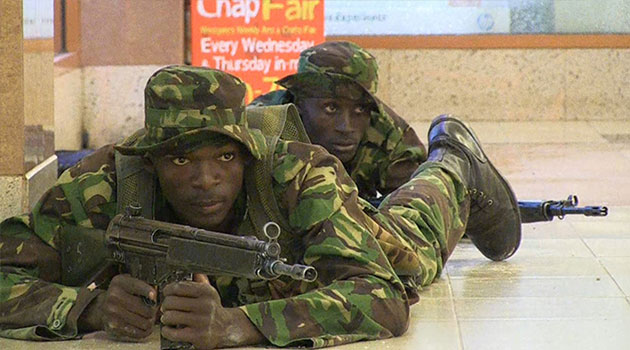Now than ever before, those working on Kenya’s radicalization and violent extremism need to enhance their online interventions. Countering violent extremism narratives and deconstruction of radical ideologies targeting the youth through online platforms are critical interventions in the wake of COVID-19 pandemic and related intervention measures. The pandemic has disrupted the flow of interventions on VE by the government through the National Counter-Terrorism Center (NCTC), Anti-Terror Police Unit (ATPU), National Security Advisory Committee and frameworks such as Prevention of Terrorism Act.
Global statistics show that COVID-induced movement controls imposed by the government, as well as the closure of local businesses, has disrupted the work of criminal gangs who thrive on, drug trafficking, terrorism and illegal control of social services to survive and are looking to cybercrime as a possible alternative source of funding. The good interventions to curb COVID-19 like enhanced bundles from telcos to assist in working from home and home-based schooling, coupled with idleness, loss of jobs and related are opening up avenues for recruitment into crime including terrorism.
In the wake of these opportunities for recruitment, is the fact that because of the curfew, self distances and related Government interventions on COVID-19, ongoing interventions by NCTC and the sustained engagement with both national and local media platforms for voices of moderation against extremism have slowed down.
The International Labour Organization has estimated job losses from COVID-19 to reach 25 million Worldwide noting that the most to be affected are people whose positions were already facing rationalization before the crisis. Such individuals might lack the advanced technical skills required to engage in cybercrime, but they could be tempted by cybercriminals to provide valuable information about their former employers. High unemployment rates among young people in the developing world and limited job opportunities in the legitimate IT sector create push factors for ‘deviant globalization’. In such contexts, large numbers of youth can turn to cybercrime.
As has been noted before, negative ideological forces like extremists exploit existing grievances due to unemployment to attract the bludgeoning youth population into violent extremism and terrorism. Remember earlier areas identified as epicentres of radicalization and VE including urban centers like Nairobi, Mombasa, Kwale and Kilifi have also been noted as epicentres of COVID-19 with Government declaring the cessation of movements in some areas. The possibility of the youth locked up in their homes and with extra time to idle or spend time on online platforms to get exposed to crime is very high.
Civil society organizations and faith-based organizations that were involved dialogues and discussions to stem rising religious tensions and the worrying trends of radicalization of youth are unable to work currently unless those with capacity to use online platforms. NCTC and other players need to, using online platforms and local-based media spaces to upscale their interventions focusing on vulnerable groups in the areas where violent extremism had taken root to help build resilience to negative narratives. Religious leaders will help a lot to enhance and infuse some counter-narratives in their online religious sessions to educate the youth on dangers of VE while those involved in community outreach for awareness creation, focusing on women and youth will help a great deal in countering violent extremism and radicalization.
With the state and especially security apparatus focusing on COVID-19 related interventions, just like the surge in petty crimes across the country because of stay-at-home measures, those in organized crimes, whose activities have been disrupted by the cessation of movement and curfews, would take advantage and use online platforms to look for other gaps to survive, recruitment into terrorism might be an option. Obviously, a lot of criminal groups have taken advantage of the COVID-19 outbreak to get involved in illegal activities like selling counterfeit personal gears, hoarding required medical equipment and drugs, money laundering in the guise of donations and purchases or mobile money transfers through the new Government measures to ease money flows.
Its advisable that alongside COVID-19 messages via online platforms and local media, CVE messages are scaled up and media literacy sessions included in the home-based schooling that is going on to cushion the youth from being radicalized or recruited.
Victor Bwire is the Head, Media Development and Strategy at the Media Council of Kenya.










































